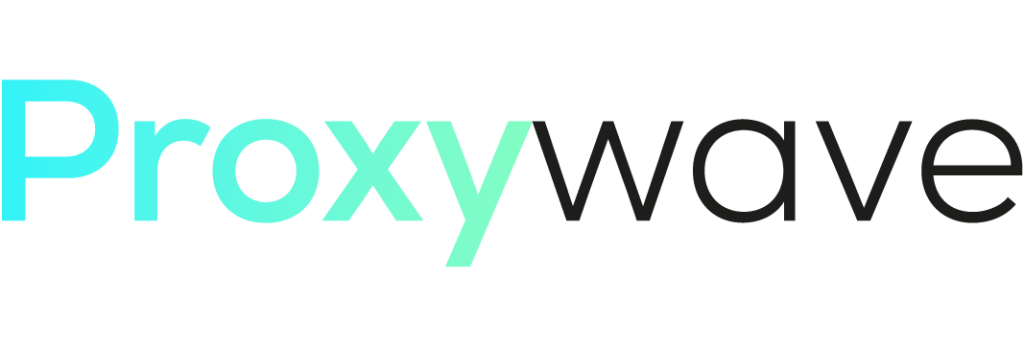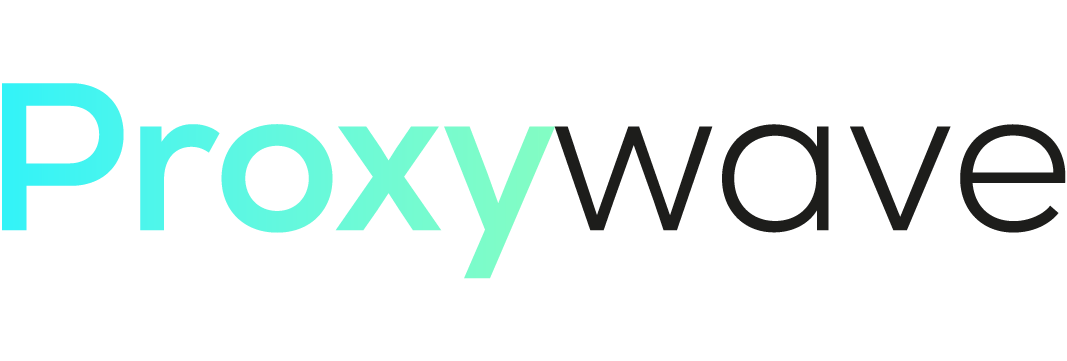Introduction: A Glimpse into Proxy Anonymity Levels
Navigating the complex world of online privacy and security can be challenging, especially when it comes to understanding the nuances of proxy anonymity levels. This beginner’s guide will provide a comprehensive overview of the three primary proxy anonymity levels, their unique functionalities, and how they can impact your browsing experience.
Proxywave is software designed to assist users in creating and managing their own 4G and 5G mobile proxies using wifi dongles. Visit proxywave to know more
Proxy Anonymity Levels – The Basics
In this section, we will define the term “proxy anonymity levels” and outline the three primary levels of proxy anonymity:
Proxy Anonymity Level 3 – Transparent Proxy
Proxy Anonymity Level 2 – Anonymous Proxy
Proxy Anonymity Level 1 – Elite Proxy
Understanding these levels is crucial in determining the appropriate proxy server for your specific needs.
Proxy Anonymity Level 3 – Transparent Proxy: The Low-Anonymity Option
Transparent proxies, also known as non-anonymous or level 3 proxies, offer the lowest level of anonymity. When using a transparent proxy, your real IP address is still visible to the websites you visit, along with the fact that you are using a proxy server. These proxies are primarily used for caching purposes to improve browsing speed, rather than for providing anonymity.
In this section, we will discuss:
- The pros and cons of using transparent proxies
- Typical use cases for transparent proxies
- How transparent proxies work
Pros of using transparent proxies:
Improved browsing speed: Transparent proxies can cache frequently accessed web content, which reduces the need to fetch the same data repeatedly. This results in faster browsing speeds for users.
Reduced bandwidth usage: By caching content, transparent proxies help reduce bandwidth usage for organizations and Internet Service Providers (ISPs), as fewer requests need to be sent to external servers.
Simplified content filtering: Transparent proxies can be used to enforce content filtering policies, making it easier for organizations, schools, or businesses to block access to specific websites or content categories.
Easy setup: Setting up a transparent proxy is generally more straightforward than configuring anonymous or elite proxies, as it requires less technical know-how and configuration.
Cons of using transparent proxies:
No anonymity: Transparent proxies do not hide your real IP address or the fact that you’re using a proxy. This means your browsing activity can be easily traced back to you.
Limited privacy protection: Since your real IP address is visible, transparent proxies do not provide any real privacy protection, making them unsuitable for users seeking online privacy or anonymity.
Ineffective for bypassing geo-restrictions: Transparent proxies cannot bypass strict geo-restrictions or content limitations, as websites can still see your real IP address and location.
Potential security risks: Some transparent proxies may be misconfigured or operated by malicious actors, posing potential security risks to users who do not verify their proxy’s trustworthiness.
Typical use cases for transparent proxies:
Content caching: Transparent proxies can be used by organizations and ISPs to cache frequently accessed content, improving browsing speeds and reducing bandwidth usage.
Content filtering: Schools, businesses, and organizations can use transparent proxies to enforce content filtering policies, blocking access to specific websites or content categories.
Load balancing: Transparent proxies can help distribute network traffic across multiple servers, improving overall network performance and stability.
Also check out: How To Sell Proxies in 2023? Tips for Ultimate Success
How transparent proxies work:
Transparent proxies function by intercepting web traffic and forwarding it to the destination server on behalf of the user. When you send a request through a transparent proxy, the proxy server receives the request and forwards it to the target website. The website then sends its response back to the proxy server, which in turn forwards the response to you.
The critical difference between transparent proxies and other proxy types is that transparent proxies do not modify the request headers to hide your real IP address. As a result, websites can still see your real IP address and the fact that you’re using a proxy server. This lack of anonymity makes transparent proxies unsuitable for users seeking privacy protection or the ability to bypass geo-restrictions.
Proxy Anonymity Level 2 – Anonymous Proxy: Balancing Anonymity and Accessibility
Anonymous proxies, or level 2 proxies, provide a higher level of anonymity than transparent proxies. When using an anonymous proxy, your real IP address is hidden from websites you visit, but the fact that you are using a proxy server is still detectable. This level of anonymity is sufficient for most everyday purposes, such as bypassing mild content restrictions or protecting your privacy from casual snooping.
In this section, we will explore:
The advantages and disadvantages of anonymous proxies
Common use cases for anonymous proxies
How anonymous proxies function
Advantages of anonymous proxies:
Enhanced privacy: Anonymous proxies hide your real IP address from the websites you visit, providing better privacy protection than transparent proxies.
Bypassing basic content restrictions: By hiding your IP address, anonymous proxies can help you bypass basic content restrictions and access region-specific content that may not be available in your location.
Reduced online tracking: Since your real IP address is hidden, anonymous proxies make it more difficult for websites and third parties to track your online activities and build a profile of your browsing habits.
Protection against casual snooping: Anonymous proxies can help protect your privacy from casual snooping by ISPs, employers, or other individuals who might be monitoring your online activities.
Disadvantages of anonymous proxies:
Proxy usage detectable: Although anonymous proxies hide your IP address, they do not conceal the fact that you are using a proxy. This can raise suspicion and potentially lead to the blocking of the proxy by certain websites.
Variable performance: The performance of anonymous proxies can vary widely, depending on factors such as server location, bandwidth, and network congestion. Some proxies may be slow or unreliable, affecting the browsing experience.
Security concerns: As with any proxy service, there is always a risk of encountering malicious or compromised proxy servers. It’s essential to choose a reputable provider or carefully verify the trustworthiness of the proxy server you plan to use.
Limited anonymity: Anonymous proxies provide a moderate level of anonymity, which may not be sufficient for users with high-stakes privacy or security requirements.
Common use cases for anonymous proxies:
Bypassing mild content restrictions: Anonymous proxies can help users access region-restricted content, such as streaming services, news websites, or social media platforms, by hiding their real IP address.
General privacy protection: Users looking for a moderate level of privacy protection while browsing the internet can benefit from the IP address masking provided by anonymous proxies.
Market research: Businesses conducting market research can use anonymous proxies to gather data without revealing their identity or attracting unwanted attention from competitors.
Ad verification: Advertisers and marketers can use anonymous proxies to verify the proper display and performance of their ads across different regions without being detected as the ad owner.
Mobile proxies are an essential tool for various online activities like web scraping, data gathering, and managing multiple social media accounts Do you want to build your own 4G & 5G mobile proxy network then check out Proxywave A Comprehensive Guide to Building Your Own 4G & 5G Mobile Proxy Network.
How anonymous proxies function:
Anonymous proxies work by intercepting your web traffic and forwarding it to the destination server while masking your real IP address. When you send a request through an anonymous proxy, the proxy server receives the request and modifies the HTTP headers to hide your real IP address. The request is then forwarded to the target website. The website sends its response back to the proxy server, which in turn forwards the response to you, maintaining your IP address hidden throughout the process.
However, anonymous proxies do not remove all information about proxy usage from the HTTP headers, so websites can still detect that a proxy is being used. This may lead to increased scrutiny or potential blocking by certain websites, but in most cases, anonymous proxies provide a satisfactory level of privacy protection for everyday use.
Proxy Anonymity Level 1 – Elite Proxy: Maximum Anonymity for Advanced Users
Elite proxies, also known as high-anonymous or level 1 proxies, offer the highest level of anonymity. When using an elite proxy, your real IP address is hidden, and it is virtually undetectable that you are using a proxy server. These proxies are ideal for users with advanced privacy and security requirements or those looking to bypass strict geo-restrictions and censorship.
In this section, we will discuss:
The benefits and drawbacks of elite proxies
The ideal use cases for elite proxies
How elite proxies operate
Benefits of elite proxies:
Maximum anonymity: Elite proxies provide the highest level of anonymity, hiding both your real IP address and the fact that you’re using a proxy. This makes it extremely difficult for websites or third parties to trace your browsing activities back to you.
Bypassing strict content restrictions: Since elite proxies make it virtually impossible to detect proxy usage, they are highly effective at bypassing strict geo-restrictions, content limitations, and internet censorship.
Enhanced security: Elite proxies typically offer better security features compared to other proxy types, such as encrypted connections and secure authentication methods.
Protection against advanced tracking: Elite proxies make it harder for websites, advertisers, and other third parties to track your online activities and build a profile of your browsing habits.
Drawbacks of elite proxies:
Slower performance: Elite proxies can be slower than other proxy types due to the additional security features and encryption they employ. This may impact the browsing experience, particularly for bandwidth-intensive activities like streaming or downloading large files.
Higher cost: Elite proxies are often more expensive than other proxy options, as they provide a higher level of anonymity and security, and may require more server resources to maintain.
Limited availability: Elite proxies may be less readily available than other proxy types, as providing this level of anonymity and security requires more advanced infrastructure and management.
Possible learning curve: Setting up and configuring an elite proxy can be more complex than using transparent or anonymous proxies, particularly for users who are new to proxy services.
Ideal use cases for elite proxies:
Bypassing strict geo-restrictions and censorship: Elite proxies are ideal for users who need to access region-restricted content or bypass internet censorship in countries with strict online controls.
High-stakes privacy protection: Users with advanced privacy and security requirements, such as whistleblowers, journalists, or political activists, can benefit from the maximum anonymity provided by elite proxies.
Secure business activities: Businesses dealing with sensitive information or conducting competitive research can use elite proxies to protect their data and maintain anonymity.
Advanced ad verification: Advertisers and marketers can use elite proxies to verify the proper display and performance of their ads without being detected as the ad owner, even when targeting regions with strict ad restrictions.
How elite proxies operate:
Elite proxies work by intercepting your web traffic and forwarding it to the destination server while maintaining the highest level of anonymity. When you send a request through an elite proxy, the proxy server receives the request and modifies the HTTP headers to hide both your real IP address and any trace of proxy usage. The request is then forwarded to the target website. The website sends its response back to the proxy server, which in turn forwards the response to you, keeping your IP address and proxy usage completely hidden throughout the process.
In addition to providing maximum anonymity, elite proxies may also employ additional security features, such as encrypted connections, secure authentication methods, and advanced privacy settings, to further protect your online activities.
If you want complete privacy then also read VPN vs Proxy: Which Offers Better Online Security and Privacy
To check the anonymity level of the proxy you are using, follow these instructions:
Configure your device or browser: First, ensure that your device or browser is set up to use the proxy server. Depending on the device or browser you are using, this may involve entering the proxy server’s IP address, port number, and any required authentication information (such as a username and password).
Visit a reliable proxy checker website: Several websites can help you determine the anonymity level of your proxy server. Some trustworthy options include:
WhatIsMyIPAddress.com Proxy Check (https://whatismyipaddress.com/proxy-check)
Proxy Checker by IPAddress.com (https://www.ipaddress.com/proxy-checker)
Whoer.net (https://whoer.net)
Run the proxy check: After navigating to the proxy checker website, the tool will automatically analyze your connection and display information about the detected proxy server, including its level of anonymity.
Proxy checkers typically categorize proxies into three levels of anonymity:
Transparent Proxy: Your real IP address and the fact that you are using a proxy server are both visible.
Anonymous Proxy: Your real IP address is hidden, but the use of a proxy server is still detectable.
Elite Proxy: Both your real IP address and proxy usage are concealed, offering the highest level of anonymity.
It’s important to note that proxy checker websites are not infallible, and their results may sometimes be inaccurate. To confirm the results, consider using multiple proxy checkers or testing your proxy server with various websites to ensure consistent anonymity levels.
Always use reputable proxy checkers, as some malicious websites may try to gather your data or compromise your privacy.


